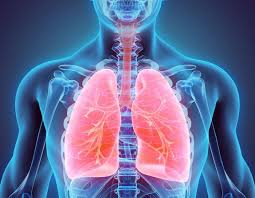Cystic fibrosis (CF) is a genetic disease that affects lungs, pancreas, liver, kidneys, and intestine. It is a lethal autosomal recessive disease that causes severe damage to the respiratory and digestive systems. It is caused by the presence of mutations in both copies of the gene for the cystic fibrosis transmembrane conductance regulator (CFTR) protein. CFTR is involved in production of sweat, digestive fluids, and mucus.
Signs and symptoms
• A persistent cough that produces thick mucus (sputum)
• Repeated lung infections
• Poor weight gain and growth
• Severe constipation
In cystic fibrosis, a mutation in gene changes a protein that regulates the movement of salt in and out of cells. The result is thick, sticky mucus in the respiratory, digestive and reproductive systems, as well as increased salt in sweat. Children need to inherit one copy of the gene from each parent in order to have the disease. If children inherit only one copy, they won’t develop cystic fibrosis. However, they will be carriers and possibly pass the gene to their own children.
CFTR modulator therapies are designed to correct the function of the defective protein made by the CF gene. Because different mutations cause different defects in the protein, the medications that have been developed so far are effective only in people with specific mutations. There are currently two FDA-approved CFTR modulators: ivacaftor (Kalydeco) and lumacaftor/ ivacaftor (Orkambi).
There is no cure for cystic fibrosis. Lung infections are treated with antibiotics which may be given intravenously, inhaled, or by mouth. Sometimes, the antibiotic azithromycin is used for long term treatment. Inhaled hypertonic saline and salbutamol may also be useful. Lung transplantation may be an option if lung function continues to worsen.
